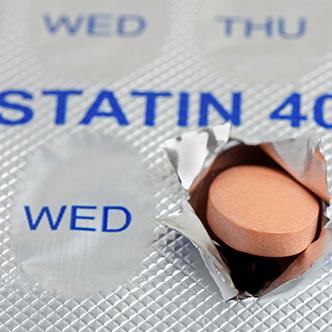
A six-year Australian study showed no difference in memory and brain function among more than 1,000 elderly adults taking statin medications. Findings were published in the Journal of the American College of Cardiology and help ease concerns about statins and their impact on the brain.
Statins are cholesterol-lowering drugs that significantly reduce risk for heart events like heart attack and stroke. They’re especially useful in patients with high cardiovascular risk—including the elderly—but as with all drugs, they come with risk of side effects. One of those risks is the potential for memory loss or confusion, which is listed on statin labels but widely disputed.
Known as the MAS study (Sydney Memory and Aging Study, it looked at the effects of aging on cognitive function in elderly adults. It included 1,037 Australians between the ages of 70 and 90 years and tracked their mental and physical health over six years.
In the most recent analysis, researchers compared six-year outcomes among participants taking cholesterol-lowering statins with those who did not. Participants completed psychological testing every two years to assess their memory and cognitive function. Half of them underwent brain imaging to track changes in brain volume.
Overall, about one-third of participants reported never using statins, while two-thirds had a history of statin use or were currently taking statins to reduce their cholesterol. When comparing outcomes, there was no difference in memory or cognitive decline after six years among statin and non-statin users. In fact, some analyses suggest that statin use may be associated with slower memory decline, depending on the test used. Authors also note that there was no difference in brain volume between statin users and non-users throughout the study.
While the study can’t prove cause and effect, findings are reassuring about the effects of statin use on memory function.
According to authors, memory loss or cognitive changes are the second most commonly reported side effect of statins. However, the effects can be difficult to measure and very few studies reliably show that statins are to blame for cognitive decline. In fact, experts note that the only long-term clinical trial in elderly adults (Prospective Study of Pravastatin in Elderly at Risk) found no difference in memory decline based on statin use.
Together with recent study findings, data suggest that fears about statins and their effect on memory may be largely unfounded. For elderly patients at high risk for heart events, the benefits of statin use often outweigh concerns about the drug’s cognitive effects.
Read the full article in the Journal of the American College of Cardiology.
Learn about CardioSmart's editorial process. Information provided for educational purposes only. Please talk to your health care professional about your specific needs.